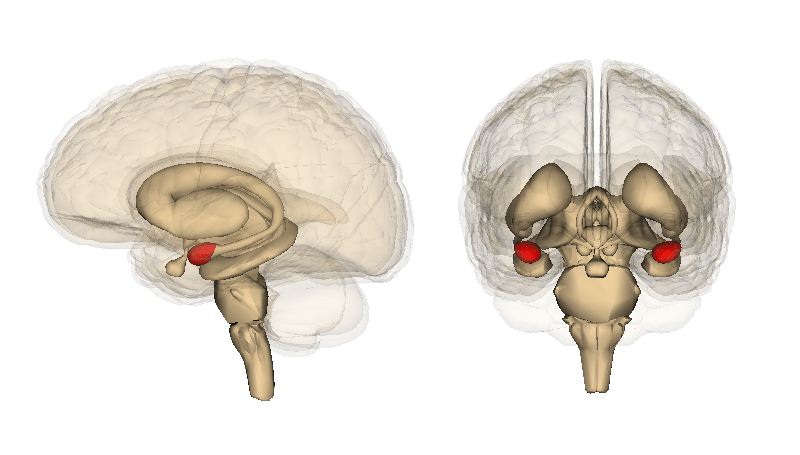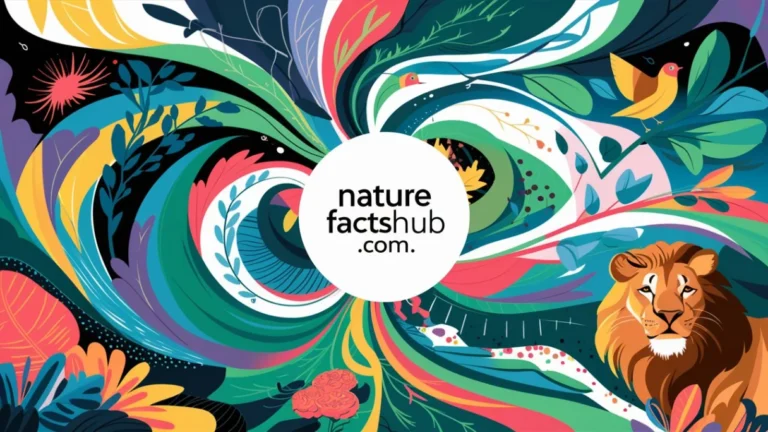The pictures we use in our articles might not show exactly what the words say. We choose these pictures to make you interested in reading more. The pictures work together with the words but don’t take their place. The words still tell you the important facts.
Have you ever wondered why you feel afraid when watching a horror movie or why certain memories stick with you more than others? The answer lies in a tiny, almond-shaped structure in your brain called the amygdala. This fascinating part of our brain plays a crucial role in our emotional experiences and memory formation. In this blog post, we'll dive deep into the world of the amygdala, exploring its functions, importance, and some surprising facts that will change the way you think about your emotions.
What is the Amygdala?
Before we jump into the exciting facts, let's start with the basics. The amygdala (pronounced uh-MIG-duh-luh) is a paired structure located deep within the temporal lobes of our brain. Its name comes from the Greek word for "almond," which perfectly describes its shape. Despite its small size, the amygdala packs a powerful punch when it comes to influencing our emotions and behaviors.
Now, let's explore some fascinating facts about this emotional powerhouse!
1. The Amygdala: Your Brain’s Emotional Control Center
The amygdala is often referred to as the "emotional center" of the brain, and for good reason. It plays a pivotal role in processing and regulating our emotions, especially fear, anger, and pleasure. When you experience a strong emotion, your amygdala is hard at work, helping you interpret and respond to the situation.
Fun fact: The amygdala is part of the limbic system, a group of interconnected structures in the brain that deal with emotions, motivation, and memory.
2. Fear Factor: The Amygdala’s Specialty
While the amygdala processes various emotions, it's particularly well-known for its role in fear and anxiety. When you encounter a threatening situation, your amygdala quickly assesses the danger and triggers the famous "fight or flight" response. This rapid reaction can help keep you safe in dangerous situations.
Interesting tidbit: Some people with damage to their amygdala have been found to have reduced fear responses, including one famous case of a woman dubbed "the woman with no fear"!
3. Memory Maestro: Emotional Memories and the Amygdala
Have you ever noticed that emotionally charged events tend to stick in your memory more vividly? You can thank your amygdala for that! This brain region plays a crucial role in forming and storing memories associated with emotional events. It works closely with other brain areas, like the hippocampus, to ensure that important emotional experiences are properly encoded and stored for future reference.
4. The Social Butterfly of the Brain
Believe it or not, your amygdala is quite the social networker! It helps you navigate social situations by:
- Recognizing facial expressions
- Interpreting body language
- Processing vocal cues
This ability to "read" others' emotions is crucial for successful social interactions and building relationships.
5. The Amygdala and Mental Health
Given its important role in emotional processing, it's no surprise that the amygdala is implicated in various mental health conditions. Research has shown that the amygdala may function differently in people with:
- Anxiety disorders
- Depression
- Post-traumatic stress disorder (PTSD)
- Bipolar disorder
Understanding how the amygdala works in these conditions could lead to better treatments and interventions in the future.
6. Size Matters: The Amygdala and Social Networks
Here's a surprising fact: the size of your amygdala might be related to the size of your social network! Studies have found that people with larger amygdalae tend to have more extensive and complex social networks. It seems that a bigger amygdala might help you navigate the intricacies of social relationships more effectively.
7. The Amygdala’s Role in Decision-Making
While we often think of decision-making as a purely rational process, our emotions play a significant role too. The amygdala helps us make decisions by attaching emotional significance to our choices. This emotional input can be crucial in helping us avoid potentially harmful situations or pursue rewarding ones.
8. The Developing Amygdala: Differences Between Males and Females
Interestingly, the development of the amygdala differs between males and females. Here are some key points:
- The amygdala tends to be larger in males than in females.
- Female amygdalae typically reach their full growth potential about 1.5 years earlier than male amygdalae.
- These differences may contribute to variations in emotional processing and behavior between the sexes.
9. The Amygdala and Addiction
Research has shown that the amygdala plays a role in addiction and substance abuse. It's involved in the brain's reward system and can influence cravings and the formation of addiction-related memories. Understanding the amygdala's role in addiction could lead to new approaches for treatment and prevention.
10. Meditation and the Amygdala: A Path to Emotional Balance
Here's some good news for meditation enthusiasts: regular meditation practice may actually change your amygdala! Studies have found that mindfulness meditation can lead to decreased amygdala reactivity, potentially reducing stress and anxiety. So, the next time you sit down to meditate, remember that you're not just relaxing – you're also giving your amygdala a workout!
The Amygdala: Small but Mighty
As we've explored in this post, the amygdala may be small, but its influence on our lives is enormous. From shaping our emotional responses and memories to influencing our social relationships and decision-making, this almond-shaped structure is truly a powerhouse of the brain.
Understanding the role of the amygdala can help us gain insight into our own emotions and behaviors. It reminds us that our experiences are shaped not just by conscious thought, but also by the intricate workings of our brain's emotional centers.
So, the next time you feel a surge of fear while watching a scary movie, or find yourself vividly remembering an emotional event from years ago, take a moment to appreciate your amygdala. This tiny but mighty part of your brain is working hard to help you navigate the complex emotional landscape of life.
As research continues to uncover more about the amygdala and its functions, we can look forward to even greater insights into the fascinating world of emotions and the human brain. Who knows what exciting discoveries about this emotional powerhouse are just around the corner?
Remember, while the amygdala plays a crucial role in our emotional lives, it's just one part of the complex and wonderful organ that is our brain. Emotions, memories, and behaviors are the result of intricate interactions between various brain regions and systems. The more we learn about these interactions, the better we can understand ourselves and the world around us.
What aspects of the amygdala fascinate you the most? How has learning about this important brain structure changed your perspective on emotions and behavior? Share your thoughts in the comments below – we'd love to hear from you!


